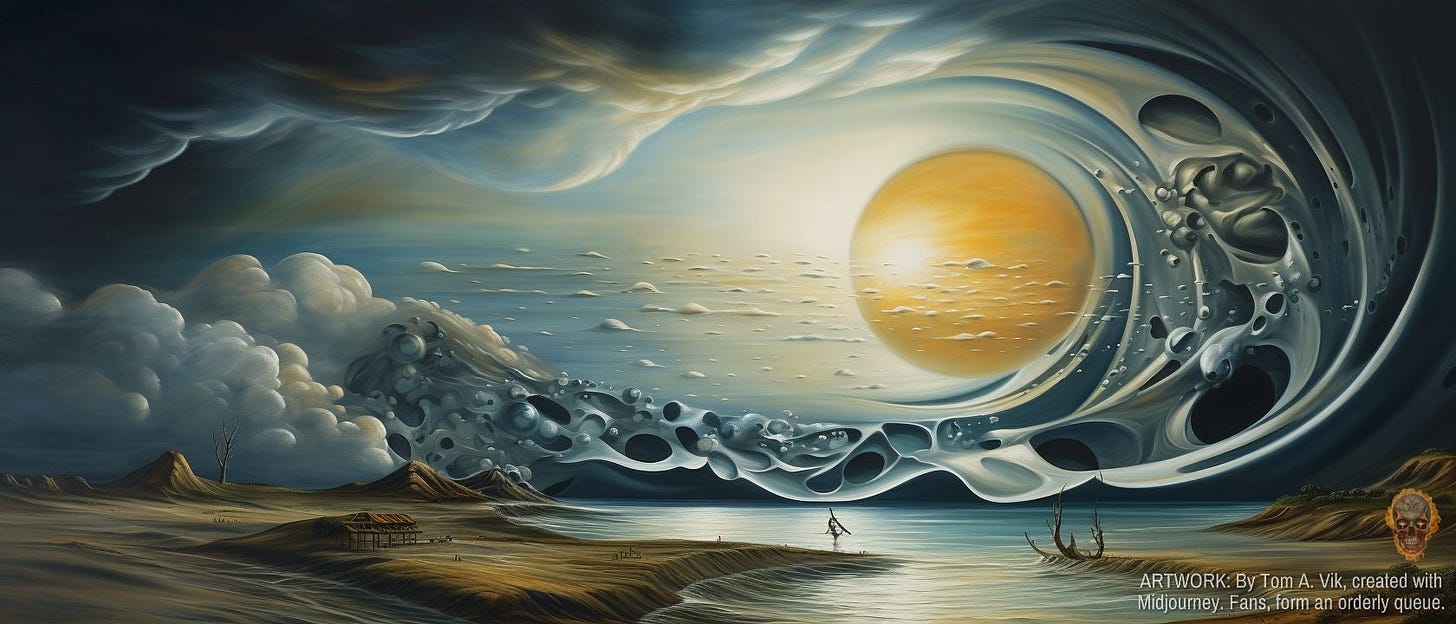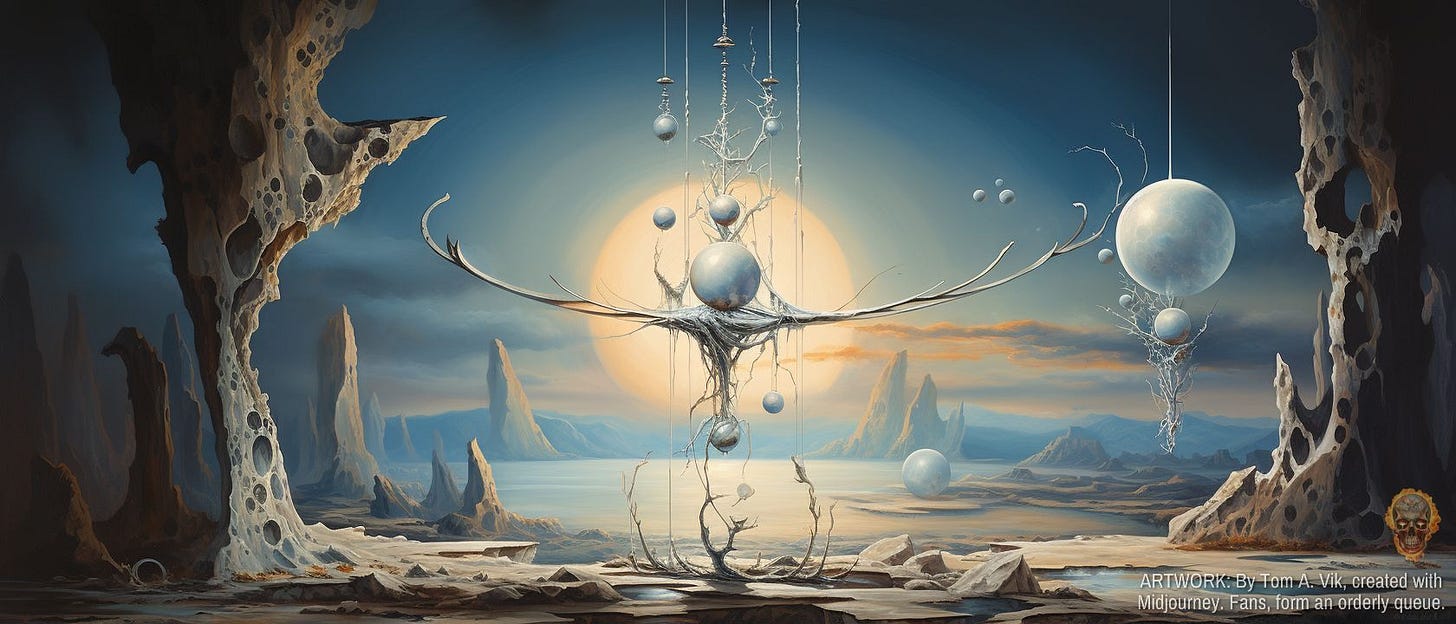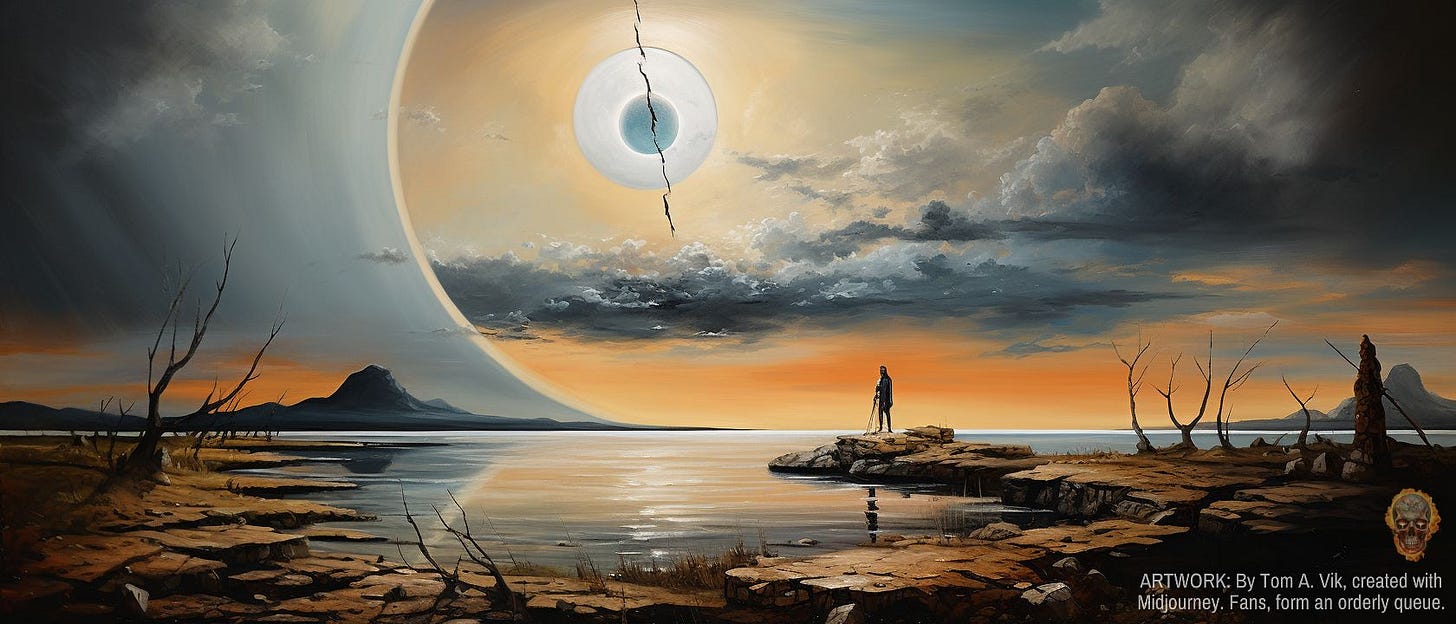People talk about awakening Kundalini like it's some sort of esoteric jackpot, the spiritual equivalent of hitting the big one.
The idea that sitting still, eyes closed, spine straight, can call forth the serpent of enlightenment is the kind of narrative that makes good copy, but let's cut through the mystical haze. Can meditation alone really stir the serpent coiled in the silent chambers of our being…
…or is this just another beguiling myth?
The Seduction of Simplicity
The tale begins with you, the seeker…
…sitting in lotus, breath balanced, mind cleared, chasing the whisper of something transcendent.
It's seductive, the simplicity of it. But simplicity is often just complexity that's had a shave and a haircut. The journey of Kundalini isn't a linear path from A to B; it's not a one-and-done deal.
Meditation as a Catalyst: Yes, meditation can be a powerful tool. It can settle the mind and prepare the soil, but awakening Kundalini isn't akin to flipping a switch. It's about the readiness of the individual, an alignment that may require more than just stillness.
The Illusion of Control: You sit. You breathe. You wait for fireworks. But the serpent doesn't care for your timetable. Kundalini defies our craving for control, emerging on its own inscrutable schedule.
Awareness and Preparation: To engage with Kundalini is to engage with the total sum of who you are. Without proper foundation — psychological robustness, ethical conduct, and a measure of grace — you're just whispering into the void.
Myth and Reality
Pull back the veil on Kundalini and what do you find?
Myth intertwined with experience, stories soaked in personal truths. Strip away the narratives, and you're left with the bare bones of being.
Demystifying the Serpent: The serpent metaphor is just that, a way to describe something deeply internal and transformative. Kundalini is not a separate entity but an aspect of self, waiting for recognition.
The Pitfalls of Expectation: Enter meditation with the expectation of awakening Kundalini, and you've already missed the point. The process is about shedding, not acquiring — letting go, not holding on to desires.
Historical Anecdotes: Consider Jung, he dove deep into the psyche, peeling away layers of self. His confrontation with the unconscious wasn't through force but through surrender, a parallel to the true nature of Kundalini awakening.
The Dance of Awakening
The question remains…
…can you awaken Kundalini through meditation alone? The dance of awakening is intricate, a partnership between your efforts and the grace of existence.
Intention vs. Happenstance: Intention sets the stage, but happenstance directs the play. Your meditative practice is the invitation, not the guarantee of awakening.
Integration and Balance: Post-awakening, life continues. Integration becomes key. A routine of nature walks, yoga, strength training, breathwork — these can be threads that weave the fabric of a balanced life.
A Personal Journey: My own trek through darkness into awakening wasn't a solo flight. The mental breakdown, the loss, the climb — it was a crucible that forged a readiness within, a resonance that maybe, just maybe, the serpent felt.
The Echo of Silence
In the end, it's not the serpent that defines awakening.
Kundalini, meditation, the chakras — they are fingers pointing to the moon, not the moon itself. The echo of silence after the mantra, the stillness in the aftermath of breath — that's where truth lives.
Actionable Insight: Sit. Breathe. Let go. Use meditation not as a key to a lock but as a practice of (un)becoming — a practice that, when coupled with the totality of your being, may or may not stir the serpent to rise.
Embracing Wholeness: Wholeness is not something you achieve; it's what you are. Kundalini, then, is the realization of this — not through the mind, but despite it.
Meditation might be the whisper to the serpent, but it's the totality of your song — your struggles, triumphs, the rhythm of your daily life — that will determine if the dance of awakening begins. Kundalini's awakening isn't a question of if or how…
…but a matter of readiness and grace. And perhaps, just perhaps, that's the most instructive truth there is.









